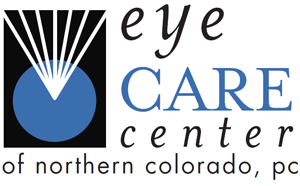Corneal Treatment
Whether you’re exploring laser refractive surgery to minimize reliance on glasses or contact lenses or dealing with any corneal condition, our compassionate treatment combined with the latest technology will help you achieve the best quality of vision.
Artificial Corneal Implantation
Cornea Transplants
- Fuch’s dystrophy
- Persistent corneal edema that my follow some cataract surgeries (pseudophakic bullous keratopathy or PBK)
- Corneal ulceration or infections including herpes simplex
- Corneal scars from previous infections or injuries
- Advanced keratoconus. Note that for many keratoconus patients, INTACS for keratoconus may be a better option
There are two main types of cornea transplants we perform.
Penetrating Keratoplasty (PKP):
PKP is traditional full-thickness corneal transplant
Descemet’s Stripping Endothelial Keratoplasty (DSEK) & Deep Anterior Lamellar Keratoplasty (DALKP):
DSEK and DALK are partial thickness “lamellar” transplants, both posterior and anterior. For patients who have Fuch’s dystrophy or bullous keratopathy a partial thickness, posterior surface transplant – DSEK – may be done. For patients with anterior scars from keratoconus or injuries, an anterior lamellar transplant – DALKP – might be best. Lamellar keratoplasties may require shorter recovery times and induce less irregular astigmatism.
We are also adept at managing existing corneal transplants, their evaluations, and medications.
Intacs
Intacs® corneal implants provide an option to improve vision and postpone a corneal transplant in most patients with keratoconus. When contacts and glasses can no longer provide adequate vision, Intacs may be a great solution.
Benefits of Intacs for Keratoconus
- Safe, replaceable, removable
- Decreases nearsightedness and astigmatism associated with keratoconus
- A more natural dome shape is restored to the cornea
- A few days of recovery compared to months for a corneal transplant
- May postpone the need for a corneal transplant
- A reversible alternative to LASIK for mild myopia
- May be used to augment previous laser vision correction
- May be paired with the Visian ICL to provide vision correction to people who are not LASIK candidates
LASIK & PRK
- Myopia (nearsightedness)
- Hyperopia (farsightedness)
- Astigmatism (blurry vision at all distances)
With LASIK, your eyes’ focusing power is restored, often eliminating the need for glasses and contacts.
More Info
Scar removal & Ocular Surface Reconstruction
Given the intimate relationship of the ocular surface with the lids and orbit, our treatment plans address all of the necessary surgical procedures needed for best patient care with ocular surface reconstruction. These include applications of amniotic membrane, limbal stem cell transplants, corneal gluing or conjunctival flaps for the ocular surface. Therapeutic blepharoplasty for entropion or ectropion, and lid lesion biopsies with repair as needed.
Visian ICLs
The surgeons at the Eye Care Centers of Northern Colorado are thrilled to provide this exciting innovation to our patients in Northern Colorado. If you have dreamed about throwing away your glasses or contact lenses forever, the Visian ICL just may be the answer you’ve been looking for. The advantages of this IOL are numerous and include:
- The Visian ICL can correct a wider range of myopia than LASIK or PRK, and the IOL can be removed
- It is invisible to you and others
- Requires no maintenance
- Is made from a collagen copolymer; collagen is the same naturally occurring substance present in our connective tissue and our eyes
- Success has been great with over 55,000 successful implantations worldwide.
- The results are excellent with over 99% of patients reporting being satisfied with their vision after the Visian ICL procedure
Also, unlike other phakic IOLs, the Visian ICL is foldable, allowing surgeons to implant the lens using a smaller incision. The Visian ICL requires a 2.8 mm to 3 mm incision as opposed to the 6 mm incision required by other FDA-approved phakic IOLs. The smaller incision is obviously less invasive, does not require sutures, and is astigmatically neutral.
Although the Visian ICL is designed to stay in the eye permanently, if overcorrection or undercorrection occurs, or if a complication develops, or if the patient’s vision changes, the ICL can be removed or exchanged by your surgeon.
